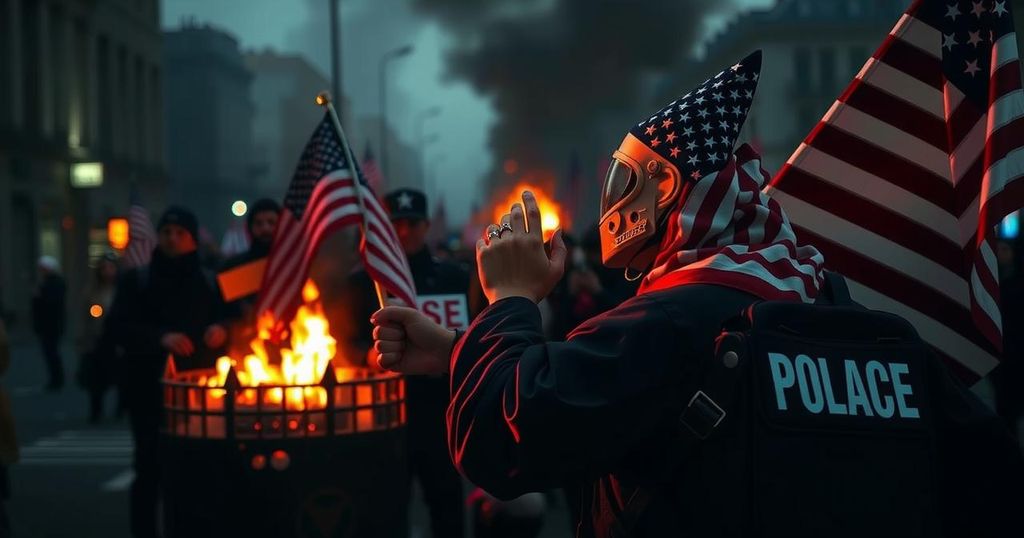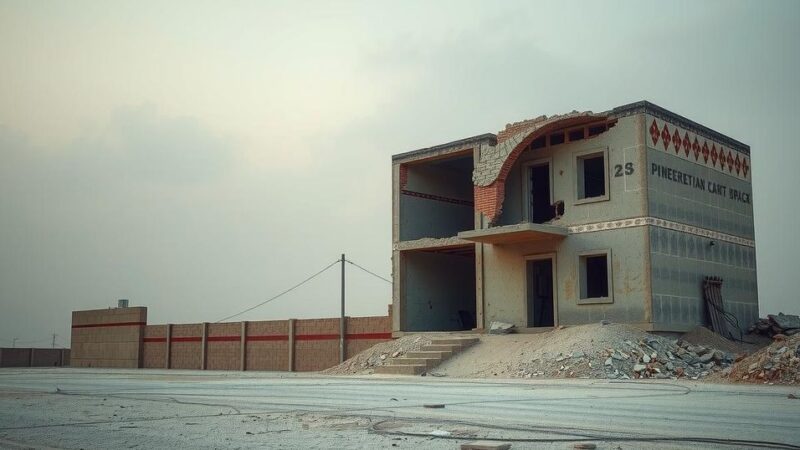U.S. intelligence warns that Russia and Iran may incite violent protests after the upcoming elections to sow discord and undermine trust in the electoral process. These nations may either organize events directly or support domestic groups, capitalizing on the risks highlighted by recent events such as the January 6 Capitol riot. Advocacy organizations are working to counter misinformation and promote voter safety amidst growing political polarization and foreign disinformation campaigns.
Senior intelligence officials in Washington have issued a warning regarding potential interference in the upcoming U.S. elections by Russia and Iran, suggesting these nations may seek to incite violent protests following the election. This alarming information was detailed in a declassified memo released by the Office of the Director of National Intelligence. The memo indicates that while these foreign adversaries could potentially organize protests themselves, they might also encourage domestic groups to participate in protests, aiming to foster discord, undermine trust in the election results, and create complications during the presidential transition process. Significantly, past incidents have raised concerns about foreign meddling, including reported attempts by Russian military intelligence to recruit an unsuspecting American to help organize protests in January. The Iranian government, likewise, has been accused of covertly supporting protests in the U.S. against American support for Israel during the current conflict in Gaza, with offers reported to cover protest-related travel costs. Intelligence officials assert that the risk of foreign-driven political violence is heightened this election cycle, as adversaries such as Russia and Iran are now more adept at navigating the complexities involved in U.S. election certification. The January 6th Capitol riot has also illustrated how misleading claims regarding election integrity can lead to real-world violence. Officials highlighted the critical period between Election Day and presidential inauguration as especially precarious, with both foreign and domestic extremist elements potentially intent on derailing the election certification process through disinformation and manipulation. Concerns are further amplified by a growing polarization within the United States and an increasing distrust among the populace, a trend that foreign adversaries have strategically exacerbated through disinformation campaigns. The interference tactics reportedly include not just attempts to shape the election outcome, but also to sow discord within American society by disseminating false narratives on voting and other polarizing issues. While China has engaged in disinformation practices, intelligence officials do not perceive a direct link between these actions and the incitement of violent protests. There is, however, a recognized threat of violence during polling, aimed at suppressing voter turnout among specific demographic groups, as evidenced by tactics observed in past elections, such as impersonating extremist groups to intimidate voters. Emphasizing the importance of maintaining democratic processes, advocacy groups are mobilizing efforts to inform the public about voter safety and resilience against disinformation. Maya Wiley, President and CEO of the Leadership Conference for Civil and Human Rights, remarked, “In 2024, voters must know that they will decide the outcome of the election — not a political party, extremist groups or purveyors of disinformation. Democracy requires passionate persistence.” Despite claims of interference, both Russia and Iran have categorically denied intentions to disrupt American electoral processes. Spokespersons for Iran’s U.N. mission and China’s Embassy have dismissed allegations of involvement as unfounded, while the Russian embassy has yet to respond to these assertions.
The growing tensions surrounding the U.S. electoral process stem from a long history of foreign interference in domestic politics, particularly from adversarial nations such as Russia and Iran. The declassified memo published by the Office of the Director of National Intelligence serves as a critical alert to the potential for unrest and violence fueled by these nations in the aftermath of the election. The strategic moves of foreign intelligence agencies aim to capitalize on existing divisions within American society, exacerbated by recent events, such as the January 6th insurrection and ongoing political polarization. Moreover, the capacity of these nations to influence public perception through disinformation campaigns poses a significant challenge to the integrity of the electoral process.
In conclusion, the warnings issued by U.S. intelligence officials underscore the potential for foreign interference in the upcoming U.S. elections, particularly from Russia and Iran. The dual threats of inciting violent protests and spreading disinformation reflect a sophisticated understanding by these adversaries of America’s electoral vulnerabilities. The period following the election until the new president’s inauguration may be particularly vulnerable to disruption, raising concerns about the integrity of the election certification process. Advocacy groups and civil rights organizations are mobilizing to combat these threats to democracy and ensure that voter resilience remains a priority.
Original Source: apnews.com






